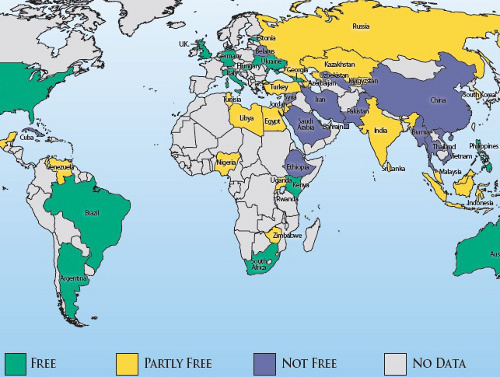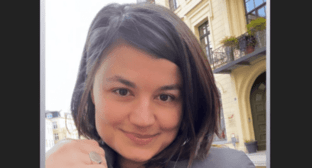
25 September 2012, 23:40
"Freedom House": Russia and Azerbaijan are countries with partial freedom of Internet
Russia and Azerbaijan are countries that are only partially free on the Internet. Georgia is free on the Internet. This was stated by authors of the report on the freedom of the Internet for 2012, which was disseminated by the human rights organization "Freedom House" on September 24.
In the report, all countries are divided into three groups in terms of Internet freedom free, partly free and non-free countries. The list of free countries includes 30 countries, and Estonia is at the top of the list. Out of the former Soviet Union republics, the list includes Ukraine and Georgia.
The list of partly free countries, or the countries "at risk", includes 26 countries. Out of the former Soviet Union republics, along with Russia, the list includes Azerbaijan.
The list of non-free countries includes 29 countries. Out of the former Soviet Union republics, the list includes Uzbekistan.
In the general list, Russia occupies the 51st place. At the same time, the "Freedom House" notes that in Russia, the Internet continues to develop actively, and it remains a relatively free area, the RIA "Novosti" reports.
However, the report states that in May 2012, the Parliament adopted the legislation on criminalizing a libel and expanded the blacklist of websites. "Well-known bloggers were detained, and criminal investigations, which give rise to questions, were started against them," the report states.
The authors of the report emphasize that contentious relationship between the Kremlin and civil society and Internet activists deteriorates, while the country is preparing for regional elections to be held in October.
"In Russia, the Internet remains a relatively non-censured platform for public debates. Meanwhile, starting from 2011, numerous DDOS-attacks and campaigns, aimed at denigrating online activists, became even more often," the "Interfax" quotes extracts from the report as stating.
Russia is among the countries, in which the actions of the authorities to restrict information are politically motivated; however, the practice has not yet been completely legalized. According to the authors of the report, the law on combating extremism, adopted in Russia, allows blocking not only the websites that distribute it, but also the websites of political organizations, since the very definition of "extremism" is very vague, the "Gazeta.ru" reports.




